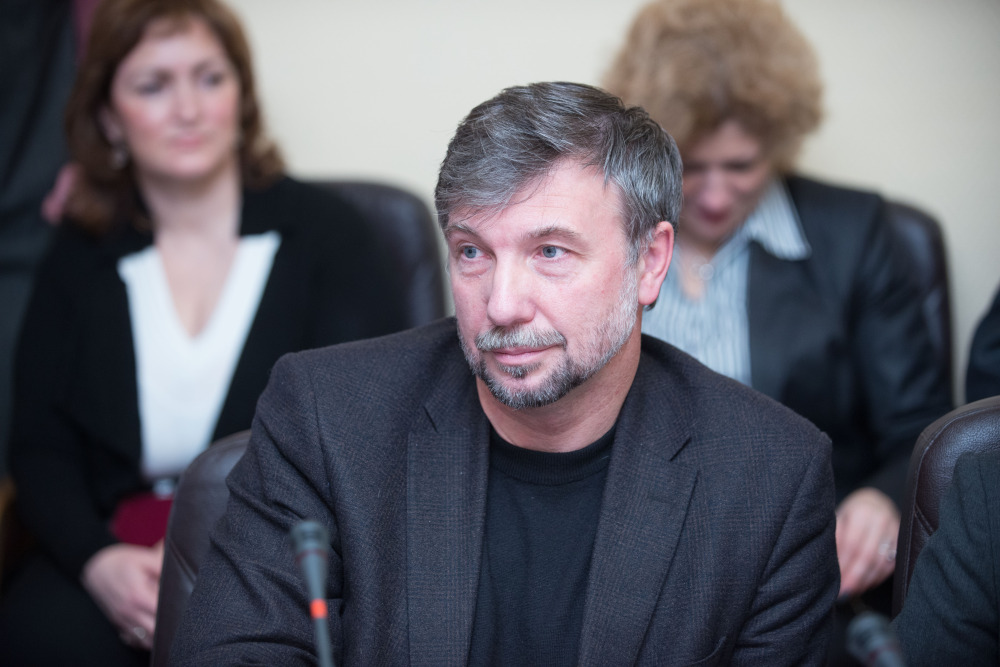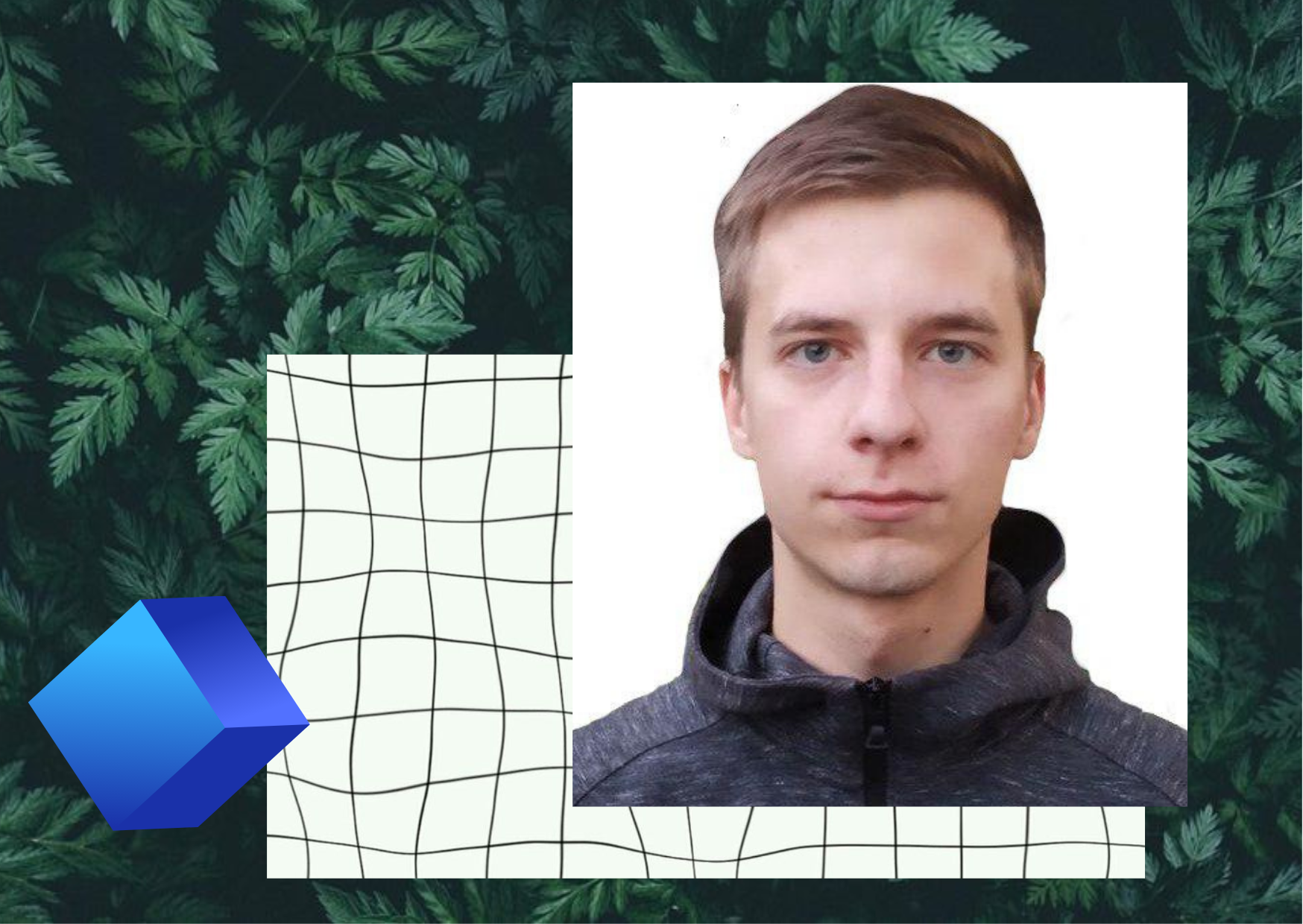‘One Year of Combined-Track Studies Expands Students’ Research Horizons’

HSE University continues to develop its new study format for students embarking on a research career: the Combined Master's-PhD track. This year, there will be 75 places for Master’s students on the track—two thirds more than last year. HSE Vice Rector Sergey Roshchin talks about the appeal of the combined-track option, how to enrol, and the achievements of last year’s applicants.
The Combined Master's-PhD track is an important innovation in working with young researchers not only for HSE university, but for all Russian higher education institutions. Its main aim is to involve students in research from the very beginning of their studies, culminating in the defence of their dissertations. This format is similar to the structured PhD programmes with Master’s studies found in foreign universities.
We launched the first Master’s-PhD track in the 2020–2021 academic year. Our aim was to select talented undergraduates who were interested in research and had started making their first research achievements.
Over 200 applicants gave presentations to their peers in research teams as part of our doctoral schools, and 90 people were shortlisted for the next round. After that, the applicants’ portfolios were analyzed by experts from other research teams, including vice rectors responsible for research work. Finally, 45 people were selected in equal numbers from each doctoral school. In addition to graduates of HSE undergraduate programmes, around 20% of students came from other universities.
Those who enrolled in the combined track set their own curricula that included a combination of master’s courses, doctoral courses, and specialist courses in their chosen research area. These students joined research projects implemented by HSE subdivisions, and chose academic supervisors for their Master’s theses who will then supervise their dissertations.

We met with students of the combined track in May to talk about how their lives had changed over the past year and what they had achieved so far. There were about fifteen speakers at the meeting, and all of them said that the track had expanded their research horizons. Before they became Master’s students, they did not quite understand how to conduct research or how to tackle research problems. Having now worked with their academic supervisors and research teams, they have a clear picture of their work for the next 4 to 5 years and have an idea of the future possibilities. Almost all of them pointed out that they had made good progress in their research projects over the first year, at the early stage of their studies.
We are happy to see that practically all participants have already proposed their own research ideas and are committed to completing the Master’s stage of the track with papers that have already been published or accepted for publishing.
The students are eager to pursue their Master’s degree while doing research, and they are prepared to work hard to get good academic results
We believe that the combined-track approach we’ve taken is effective, and we’re working to refine some of the smaller points. For instance, more attention should be paid to the right combination of studies and research when developing individual curricula.
The same admission procedure will be used in the 2021–2022 academic year. Each doctoral school will decide which Master’s programmes should nominate students to the combined-track programme. I would like to point out that this is only applicable to scholarship students. They will be selected based on their applications and portfolios, which must be submitted by September 15. As with last year, every successful applicant will have an individual curriculum, an academic supervisor, and the opportunity to combine their studies with research. Successful candidates will also receive a scholarship of RUB 50,000.
HSE University will continue developing the combined Master’s-PhD format. We regard it as main avenue of development for young researchers, a source of future doctoral students, and a standard of quality in academic training. The combined track efficiently covers the purely academic stage typical of some Master’s programmes, and helps involve students in research from the very beginning of their studies. I hope we will be able to expand the available resources and management capabilities of the project.
The combined Master’s-PhD track is a good alternative to overseas study programmes after obtaining an undergraduate degree. There are considerable differences between a conventional Master’s programme and a structured doctoral programme, both in terms of individual choice and the opportunities that Russian universities offer those with undergraduate degrees.
I am certain that many of those who have applied to Master’s programmes would be eager and qualified enough to study on the combined track.
Students’ personal cases
ALISA KUZMINA, MASTER’S STUDENT IN POSITIVE PSYCHOLOGY
I first thought about becoming a researcher when I was an undergraduate. It was during my first Introduction to Psychology lecture given by Vladimir Shadrikov. He said that science is primarily an art and that it takes creative courage to be a researcher. Soon after that lecture, I joined the Laboratory of Ability Psychology.
When I was in my third year, another teacher asked us, ‘Who wants to become a great psychologist?’ I firmly answered ‘Me!’ (but only to myself, of course). I haven’t made up my mind about my career trajectory yet. However, when my academic supervisor told me about the combined track (or, as we sometimes call it, ‘double trouble’), I knew that the programme was for me. I passed the competition tests, which means the admission panel must have considered me suitable for the programme.

I must admit that it was a challenging academic for me due to social isolation, lack of physical activity and high academic workload. Back in January, I could hardly keep up with my schedule for writing articles. Fortunately, thanks to the combined-track format, I felt supported by the university, and that spark of desire to become a researcher still grows stronger every day. By the end of the year, I had written and submitted two articles for publication, held my first open lecture, and completed the doctoral course in the Philosophy of Science.
I’m currently doing interdisciplinary research that combines psychology, linguistics, and computer science. I’m also working at the Laboratory for Linguistic Conflictology and Modern Communication Practices of the Faculty of Humanities, and I’m gradually getting a clearer idea of the potential focus of my research programme. I would like to continue networking to meet more like-minded researchers who are interested in the same field. Next year, I will be teaching my own course on machine analysis of texts. I’d like to build a team of student researchers at the School of Psychology to introduce computer linguistic methods into psychologists’ research.
SERGEY TROSHIN, MASTER’S STUDENT IN DATA SCIENCE
When I was in the third year of my undergraduate programme, I decided that I would like to do research. Fortunately, the international laboratories of the Faculty of Computer Science offer a wide range of opportunities in this area. That’s how I ended up in the Centre for Deep Learning and Bayesian Methods, where I made my first research efforts under the leadership of my brilliant colleagues, Ekaterina Lobacheva and Nadezhda Chirkova.
I enrolled in the combined-track programme on Ekaterina’s recommendation. At that stage, I was already almost certain that I wanted to complete a doctoral degree in Russia and pursue an academic career. The combined-track programme only strengthened my resolve. I wasn’t sure that I would be admitted, though, because successful applicants were supposed to have at least one publication to their name—not just the desire to do research. Fortunately, I had a preprint of an article, a convincing plan for future research, and a strong motivation, all of which helped me win a place.

Students on the combined track have to publish a lot of articles. I worked with Nadezhda Chirkova to publish two articles for major international conferences about the use of deep learning to analyze program source codes. I consider that a great achievement. Our research will be useful to software developers, and we’re going to continue our research in this very contemporary field.
I’ve spoken about our work at a seminar for doctoral students. In addition to my studies, I’ve started to do some teaching. I’ve been a teaching assistant on many courses and held seminars on machine learning—next year, I’ll be running a research seminar for third-year students. My plans for the next few years are to continue working at the Centre for Deep Learning and Bayesian Methods, publish a couple of recognized articles and complete my dissertation.
VALERIA KONDRATENKO, MASTER'S STUDENT IN APPLIED METHODS OF SOCIAL ANALYSIS OF MARKETS
Once I learned about the combined track from Dilyara Ibragimova, who I worked with as a teaching assistant, I quickly prepared all the necessary documents for the competition. The most challenging part was to develop a draft research plan for my Master’s and doctoral studies—I had just two weeks to plan my life for the next five years. When I was an undergraduate, I became interested in the topic of alcohol consumption, so I decided to continue my research in this area. As a Master’s student, I study how parents influence their children’s attitudes to alcohol. When I study for my doctoral degree, I will be analyzing how spouses shape each other’s alcohol behaviour patterns.
Anyone thinking of pursuing an academic career has to demand a lot from themselves, particularly when it comes to getting articles published in leading journals. Publications are of vital importance. This year, I have published an article in Economic Sociology, and I’m going to co-author another one next year once I’ve finished my undergraduate degree. I want to write my dissertation based on the articles I publish.

At the end of the year, the combined-track students had a meeting with Vice Rector Sergey Roshchin to discuss the results of our studies. One of the conclusions we all came to was that inclusion in the research community is vital. We must share our research results with each other and find ways to improve what we’ve done so far. This is something we can do in laboratories. I work for the Laboratory for Studies in Economic Sociology and have spoken at conferences. This helps me develop as a researcher in the academic environment.
The combined track is a good alternative to an overseas PhD programme. I see more opportunities for myself in Russia, and the theme of my research interests many of my colleagues at HSE University. It would be foolish to leave the country just for the sake of it when there are so many opportunities here. I think that studying abroad just makes you more mobile—in autumn, I’m going to Bologna under an exchange programme.
ANASTASIA KROMINA, MASTER’S STUDENT IN Cognitive Sciences and Technologies: From Neuron to Cognition
I began doing research at the HSE Centre for Language and Brain back when I was a third-year undergraduate student. I never get bored of research—it just gets more and more intriguing and absorbing. I realized almost straight away that I wanted to pursue this field.
The combined-track study format was very appealing to me. First, it makes it easier to enrol in a doctoral programme. Second, it’s an opportunity to study some topical courses for doctoral students while you’re still a Master’s student. Last but not least, the combined-track programme provides a bigger scholarship, which, like any financing, is an effective incentive to work even harder on your research.

As I’d already made up my mind about which area of research to specialize in (my project is called ‘Eye movements in Russian Sign Language Speakers with Hearing Impairments’), I didn’t need to come up with a new topic for the first round of the competition to enrol in the combined-track programme. The second round—which involved presenting my research—was a bit more worrying for me. It’s always a great responsibility to speak in front of professors and experts from different fields. Everyone who applied did a good job, so it was impossible to know whether I’d passed. I was delighted to see my name on the list of admitted students.
Over the past year on the combined-track programme, I have managed to complete two doctoral courses. I also took part in one Russian and one international conference with two poster reports—an oral report and a flash report. Most importantly, I started writing an article for an international peer-reviewed journal, which I’m planning to complete early next academic year.
After that, I’m going to complete my Master’s degree, enrol in the doctoral programme, and write and defend my dissertation. I will also continue my research work, pursue a career and work to become a well-known figure in my field. I made my academic plans for the next few years a long time ago, but now I’m sure that I can put these plans into action thanks to the combined-track programme.
See also:
Zaruhi Hakobyan Shortlisted for HSE Alumni Awards
Zaruhi Hakobyan, master’s graduate of the HSE University Faculty of Economic Sciences and research scientist at the University of Luxembourg, is involved not only in research but also in organising academic events for young scientists and students. As a foreign graduate of HSE University, Zaruhi was nominated for the HSE Alumni Awards ‘for her tireless enthusiasm in popularising economic science, teaching, and research at the international level’ and made the shortlist.
‘Studying at HSE Was a Chance for Me to Get to Know Some Supportive Seniors, Knowledgeable Professors, and Wonderful Friends’
On August 4, 2023, a pre-defence of the thesis on ‘Refugee-Host Community Conflict over Assimilation, Integration, and State Legitimacy: The Case of Rohingyas in Bangladesh’ by Md. Reza Habib will be held at HSE University. The preliminary defence will take place at a joint meeting of the HSE School of Sociology and the International Laboratory for Social Integration Research. Md. Reza Habib shared his experience of studying and preparing his PhD with the HSE News Service.
‘At HSE University, We Receive Substantial Support for Our Research’
Wenrui Zhang, from China, is a recent graduate of theMaster’s in Economics and Economic Policy at the HSE UniversityFaculty of Economic Sciences. Having successfully defended his master’s thesis on the impact of COVID-19 on the incomes of vulnerable groups, Wenrui has set his sights on publishing his research and enrolling in adoctoral programme at the university. The HSE News Service interviewed Wenrui about his achievements so far and his goals for the future, and also spoke to Prof.Elena Kotyrlo, his academic supervisor.
‘I Hope to Make Meaningful Contributions to the Academic Community’
Why do international students at HSE University decide to pursue a career in academia? What fields in economics are relevant to PhD students? Richard Asiamah from Ghana and Alesya Bukreeva from Uzbekistan are current master’s students at the Faculty of Economic Sciences, but have already received scholarships from the faculty to continue their studies as doctoral students at the university. Below, they share their experiences, while Denis Melnik, Academic Director of the Doctoral School of Economics, suggests some tips for the application process.
1,700 International Participants Named Winners of Open Doors International Olympiad
On March 16, the results of the Open Doors International Olympiad for master’s and doctoral applicants were announced. The competition is organised by the Association of Global Universities with the support of the Ministry of Education and Science of Russia and the Federal Agency for the Commonwealth of Independent States Affairs, Compatriots Living Abroad, and International Humanitarian Cooperation (Rossotrudnichestvo). HSE University is one of the Olympiad’s organisers and the site of its distributed project office.
‘My PhD Taught Me about Life, Professionalism, Research, and Controlling My Emotions’
Wai Yan Phyo Naing first came to HSE University from Myanmar to enrol in a master’s programme at the Faculty of World Economy and World Affairs in 2015. After graduation, he decided to pursue a PhD at the Doctoral School of International and Regional Studies. On February 16, 2023, he successfully defended his dissertation on ‘Evolution of Myanmar’s Policy Towards China (1988–2020)’.
‘Working in Academia Is My Lifelong Desire’
Majid Sohrabi is a 28 year-old student from Iran currently enrolled in a doctoral programme at the HSE University Faculty of Computer Science. Before starting his PhD, he graduated with honours from the university’s Master of Data Science programme. In addition to studying, he also works as an assistant at the School of Data Analysis and Artificial Intelligence and a research assistant at the Laboratory for Models and Methods of Computational Pragmatics.
‘HSE University Gives You Everything You Need to Manage the Research Process’
Ion Frecautan chose to pursue his doctoral studies at HSE University because of its reputation as a leading research university and its extensive academic infrastructure. With the latest enrolment campaign for doctoral schools now underway, we spoke to Ion about his green finance research at the Faculty of Economic Sciences, his activities as a lecturer, and more.
Graduate Admissions Webinars: PhD Programme in Economics
On February 1, 2023, HSE University will open admissions to its doctoral schools. The Doctoral School of Economics has held a webinar for prospective students, which attracted participants from various parts of the world. Materials and feedback from the webinar, as well as information on applications, are now available on the Faculty of Economic Sciences website.
Over 56,000 Participants from 196 Countries Registered for Open Doors: Russian Scholarship Project
The first stage of the Open Doors: Russian Scholarship Project for prospective master’s and doctoral students has concluded. The winners of the competition get an opportunity to study at Russian universities for free. HSE University is among the most popular universities on the project.


